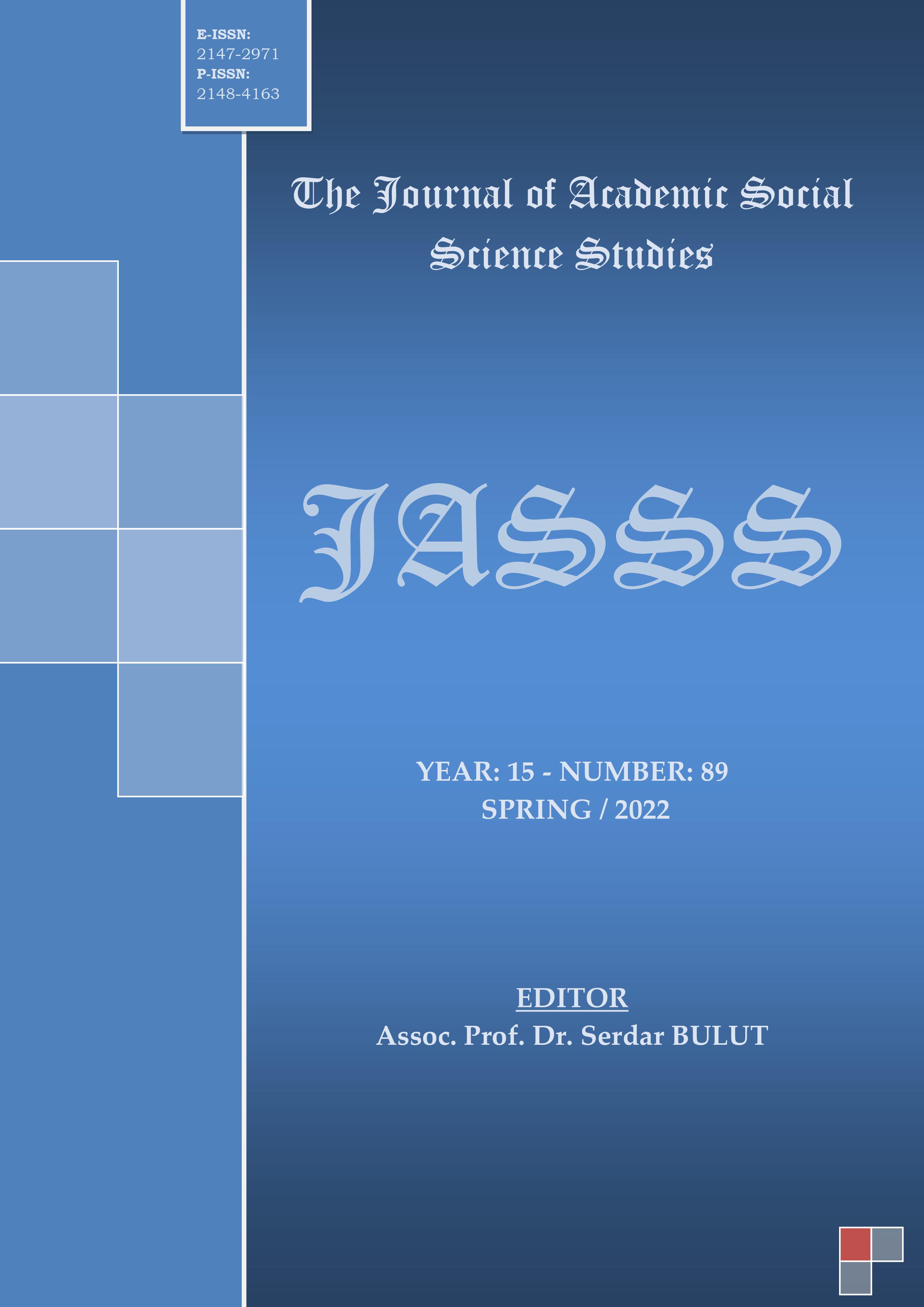Author :
Abstract
Edebiyat bir yanıyla toplumun dilidir. Toplumu meydana getiren birey ve onun içinde yaşadığı sosyal çevre ve sosyal olaylar kurgusal bir örüntü içinde edebiyat aracılığıyla okuyucuya sunulur. Edebi metinler, sınırsız sayıda sosyal ve tarihsel olayı geniş bir zaman dilimi içinde işleyebillir. Tarihte yaşanmış olayları bir bakıma kaydeden edebiyat aslında topluma ayna görevi görür. Bu yanıyla edebiyat ve temelde de roman, gerçekçidir.
Gerçekçi romanın Türkiye’de temelinin atılmasında ve gelişmesinde büyük bir paya sahip olan Kemal Tahir, bir yandan eserleri aracılığıyla Anadolu insanını ve Anadolunun toplumsal yapısını anlama ve anlatmaya çalışırken bir yandan da tarihsel dönemleri ve bu dönemlerdeki sosyal, siyasal ve kültürel çehreyi resmeder. Bu meselelerin önemli bir yer tuttuğu romanlardan biri olan Yediçınar Yaylası, genel itibariyle Osmanlı modernleşme sürecinde merkezi iktidar ile taşra ilişkisine dair önemli tarihsel ve sosyolojik tartışmalara değinir. Tanzimat’tan Cumhuriyet’in ilk dönemine uzanan bir süreçte Osmanlı taşrasındaki toplumsal değişim, dönüşüm ve taşranın bu değişim ve dönüşüme karşı reflekslerini konu aldığı görülen Yediçınar Yaylası, sosyo-kültürel, sosyo-ekonomik ve siyasal örgütlenme ile ilgili önemli bilgiler sunar. Diğer taraftan, Osmanlı modernleşme sürecindeki yapısal reformları içeren Yeniçeri Ocağının kaldırılması, Tanzimat Fermanı ve Meşrutiyet’in ilanı, ve Mısır Valisi Mehmet Ali Paşa isyanı gibi siyasal ve tarihsel olayları konu edinmesi bakımından eser, hem edebiyat sosyolojisi hem de tarihsel sosyoloji bağlamında incelenebilir.
Keywords
Abstract
Literature is the language of society. The individuals, the social environment they live in and social events are presented to the reader in a fictional pattern through literature. Literary texts can handle an unlimited number of social and historical events over a wide period of time. Literature, which somehow records the events in history, actually serves as a mirror to the society. In this respect, literature, and specifically novel, is realistic.
Kemal Tahir, who played an important role in the formation and development of realistic novel in Turkey, on the one hand, tries to understand and explain the Anatolian people and the social structure of Anatolia through his works, and on the other hand, he portrays the historical periods and the social, political and cultural aspects of these periods. Yediçınar Yaylası, which is one of the novels rich in these issues, in general, touches on important historical and sociological arguments on the relationship between the centralised power and the rural in the Ottoman modernization process. Yediçınar Yaylası, which appears to discuss the social change, transformation and the reflexes of the rural against this change and transformation, in the process from the Tanzimat to the first period of the Republican Era, provides important information about socio-cultural, socio-economic and political organization. On the other hand, the study can be examined in the context of both literary sociology and historical sociology, as it deals with political and historical events such as the abolition of the Janissary Corps, the Tanzimat Edict and the Constitutional Monarchy as part of the structural reforms in the Ottoman modernization process, and the Egyptian Governor Mehmet Ali Pasha rebellion.
Keywords
- Alver, K. (2004). Edebiyat Sosyolojisi. Ankara: Hece Yayınları.
- Aydın, E. (2004). Edebiyat Sosyolojisi ve Karşılaştırmalı Edebiyat Bilimlerinin Görev ve Özellikleri. (Ed. K. Alver). Edebiyat Sosyolojisi İçinde (s. 151-163). Ankara: Hece Yayınları.
- Çelik, N. (1974). Kemal Tahir İçin Bibliyografya Çalışması. Türkiye Defteri 6 İçinde (s. 17-51).
- Erkal, M. (1987). Sosyoloji (Toplum Bilim). İstanbul: Filiz Kitabevi.
- Goldmann, L. (2005). Roman Sosyolojisi, (Çev. A. Erkay). Ankara: Bileşik Yayıncılık.
- Gündüz, O. (2010). Kemal Tahir Romanlarında Toplumsal Değişme ve Köy. (Editörler: E. Eğribel ve M. F. Andı). Kemal Tahir Yüz Yaşında İçinde (s. 322-339). Ankara: T.C. Kültür ve Turizm Bakanlığı Yayınları.
- İnam, A. (2006). Ebediyâtını Yitirmiş Edebiyat. Doğu Batı Düşünce Dergisi , 0(22), 21-36.
- Kösemihal, N. Ş. (1964). Edebiyat Sosyolojisine Giriş. İstanbul Edebiyat Fakültesi Sosyoloji Dergisi , 2(19- 20), 1-37.
- Lukacs, G. (2000). Çağdaş Gerçekliğin Anlamı. İstanbul: Payel Yayınları
- Moran, B. (1999). Edebiyat Kuramları ve Eleştiri. İstanbul: İletişim Yayınları.
- Özel, M. (2019). Romanperver İktisatçı. İstanbul: Küre Yayınları.
- Rene Wellek, W. A. (1983). Edebiyat Biliminin Temelleri, (Çev. A. E. Uysal). Ankara: Kültür ve Turizm Bakanlığı.
- Sağlık, Ş. (2004). Popüler Romanlar ve Edebiyat Sosyolojisi. (Ed. K. Alver). Edebiyat Sosyolojisi İncelemeleri İçinde (s. 181-217). Ankara: Hece Yayınları.
- Tahir, K. (1991). Notlar/ 1950 Öncesi Cezaevi Notları. İstanbul: Bağlam Yayınları.
- Tahir, K. (1996). Yediçınar Yaylası. İstanbul: Adam Yayınları.
- Tural, S. K. (1993). Edebiyat Bilimine Katkılar. Ankara: Ecdad Yayınları.
- Yücel, M. (2011). Osmanlı-Türk Romanında Kürt İmgesi. İstanbul: Agora Kitaplığı.





